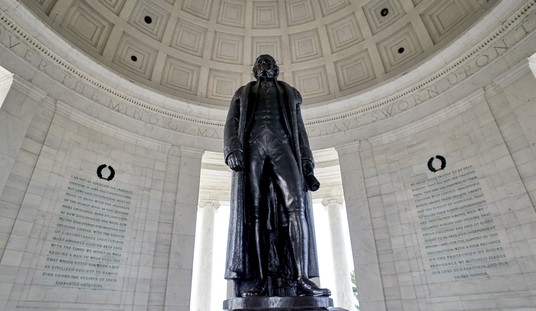Advertisement
This is not about the American Dream or a Horatio Alger story. (Does anybody remember him?) Nor is it mythmaking. It's made of sterner stuff than that. Although there are 16,000 or so books about Lincoln, and a famous movie with Henry Fonda as the young Lincoln, there's enough freshness in this late portrait to animate anyone eligible to watch a movie with the PG-13 rating.
To whet an appetite, there's the excerpt available on the Internet where the president, played by Daniel Day Lewis, explains his political philosophy to two young men working in the White House telegraph office. Lincoln recalls Euclid's 2,000-year-old dissertation on mechanical reasoning, the principle that "things that are equal to the same thing are equal to each other." Euclid says it's "self-evident." Lincoln agrees.
Such nuggets of wisdom abound, along with references from Shakespeare and a bawdy story about a portrait of George Washington hanging in an outhouse to inspire relief for British soldiers in the Revolutionary War. Lincoln was a learned man, but he was earthy, too. He drew on deep learning and applied it widely. He talks in parables and finds a story to illustrate just about every situation and strategy.
Recommended
Advertisement
In one scene, while he waits with his Cabinet for news of the shelling of Wilmington, N.C., he begins a story: "I heard tell once." The phrase so exasperates Secretary of War Edwin Stanton that he walks away, telling the president, "I don't believe that I can bear to hear another one of your stories right now." This is no marble president on a pedestal.
But Steven Spielberg's "Lincoln" is an epic of sorts. It begins in the middle of things. The Civil War, though nearing the end, has been going on for four years. Lincoln is the old "war horse," but unlike Spielberg's earlier movie of that name, "Lincoln" has only one brutal battle scene.
The most poignant evocation of war shows Lincoln riding through a field of ripped and rotting corpses, and Lincoln takes off his stovepipe hat in homage to the dead, North and South and Americans all. This is not a hymn to "arms and the man" so much as a long mournful dirge played on the strings of banjos, fiddles and the keys of a parlor piano. It's as gritty and earthbound as the America of Mark Twain.
This "Lincoln" is not about heroism and ideals, but about reality and fighting for what's right, even when "right" is seen from two distinctly different points of view -- or, as Lincoln puts it, "the right as God gives us to see the right." If there was no room to compromise over slavery before the war, the struggles for compromise are not over afterward because the winds of war still blow. They merely change direction.
Advertisement
While every schoolchild knows that Abe Lincoln freed the slaves, not many that I've met actually know how he did it. Few seem to understand that the Emancipation Proclamation freed only the slaves in the 11 Confederate states. Fewer still know why Lincoln thought it crucial before he began his second term, and before the war was over, to enact the 13th Amendment to give all men equality under the law. That's the tight focus of the movie.
I watched "Lincoln" with two precocious teenagers, who in spite of their bravado and smarts leaned toward the screen to listen closely to Lincoln's complicated and legalistic explanation of why the country needed the 13th Amendment. They conceded they learned things they didn't know about both the law and Lincoln. (So did I.)
This is a talky movie. Compared to popular 3-D spectacles, it's muted and low-key. Many reviewers have written about how it's "relevant" today, and that Barack Obama could learn from Lincoln's cunning to keep from falling off the fiscal cliff. A knowing titter goes through audiences in Washington when Thaddeus Stevens, the radical Republican abolitionist from Pennsylvania, castigates Lincoln for his inability to win legislative compromise. "I lead," Lincoln says. "You ought to try it."
Advertisement
But it's about a lot more than relevance. It informs as it entertains, engages, enrages, champions, challenges and reminds once again how hard it is to bring about change in a democracy -- and do it with malice toward none.

























Join the conversation as a VIP Member